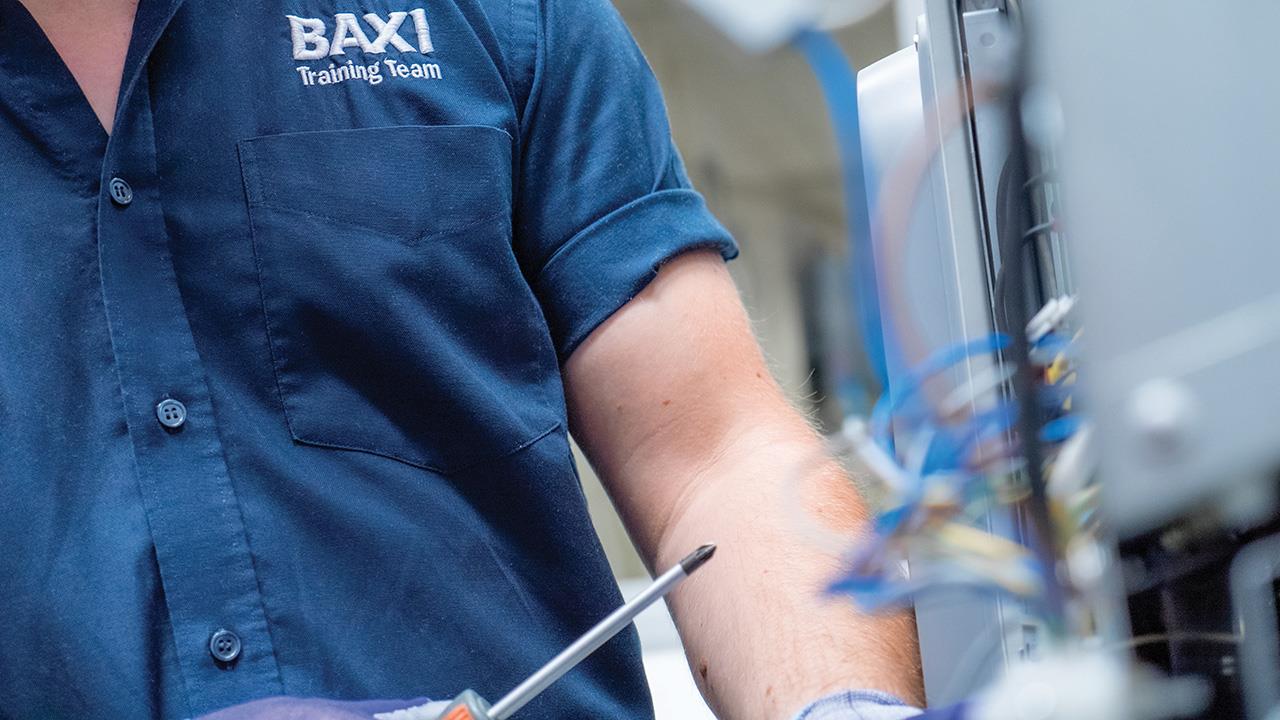

More than 130,000 installers in the UK work to keep our heating and hot water systems operational, and every year 1.6 million new heating appliances are sold, meaning 5,000 are installed on an average working day.
The UK’s heating and hot water infrastructure accounts for 17% of the country’s carbon emissions, and there are ambitious plans in place to ensure these several thousand daily installations are as low carbon as possible.
Working with appliances such as heat pumps or hydrogen boilers will be necessary for decarbonising heat, not least because by the year 2050, 29 million current homes will need to be upgraded to low carbon heating systems to reach net-zero targets. Though the challenge ahead is steep, it is also a huge opportunity for installers to develop an entirely new set of skills and diversify their work to include installation of new technologies.
In order to ensure the heating industry and its network of installers are able to capitalise on the opportunity presented by this shift, progress has thankfully been made to overcome many of the misconceptions previously associated with heat pumps.
Funding training
Concerns have previously been raised around the costs incurred, by installers facing the ‘double dip’ of training fees and the sacrifice of missed working days. In order to ensure all engineers have access to training courses, it feels only right that incentives are put in place to encourage more to become certified heat pump installers.
Thankfully, the government has done just that in the form of its Heat Training Grant for heat pumps. This incentive offers £500 towards heat pump training through a rebate or discount on courses with registered providers. What’s more, some manufacturers are matching the offer with their own incentive schemes, providing further encouragement for installers to take up the offer.
A key responsibility of manufacturers is to help professionals become comfortable with the technology, so new training courses are being developed and offered on everything from introductions to the technology and how it works, to in-depth courses on design and installation.
By incentivising training participation and addressing the financial implications of attending courses, a vital step to increasing heat pump installation in the UK has now been taken.
Growing demand
Currently around 60,000 heat pumps are being installed per year – 10% of the government’s goal of 600,000 heat pump installations per year by 2028. Driving consumer awareness around the technology and the benefits it brings is a fundamental part of growing this emerging market.
Installers have an opportunity to share with customers the wider availability of heat pumps and help them understand the benefits the technology can bring to a home.
But, to do this, there must be an added motivation for homeowners to break away from the gas boilers they’ve relied upon for decades.
The government has been incentivising this through the Boiler Upgrade Scheme, which offers £5,000 towards heat pump installations. In a welcome move, the scheme has now been extended to 2028.
This means installers still have plenty of time to achieve the necessary accreditation to be able to offer the option of heat pumps through the scheme to their customers. In the meantime, the government, manufacturers, and engineers all have an opportunity to drive awareness among homeowners of the energy savings that can be made and the environmental benefits brought about by heat pumps to help this market mature.
The next generation
The industry is rallying to address the skills supply challenge is facing, as many engineers are approaching retirement age. It is vital for the next generation to be trained to take on roles in the industry and ensure it remains a viable and sustainable profession.
The government and industry are working to make training incentives and apprenticeships more visible and attractive to potential newcomers to heating.
To keep pace with the growing market, more young people with a passion for sustainability need to be encouraged to take up heating engineering and learn the installation and maintenance of all available technologies so that homeowners can have access to the breadth of options.
Concluding thoughts
Work towards driving a booming heat pump market is underway and, by using insights from the network of installers across the UK, the government has been able to start directing efforts in the right places. It is vital that both heating engineers and their customers are comfortable with the idea of making this switch.
With the right support from the government, manufacturers, and industry bodies, installers will soon be a real positive force for energy efficiency and environmental progress, by delivering high quality, professional, heat pump installations.
If you'd like to keep up-to-date with the latest developments in the heating and plumbing industry, why not subscribe to our weekly newsletters? Just click the button below and you can ensure all the latest industry news and new product information lands in your inbox every week.